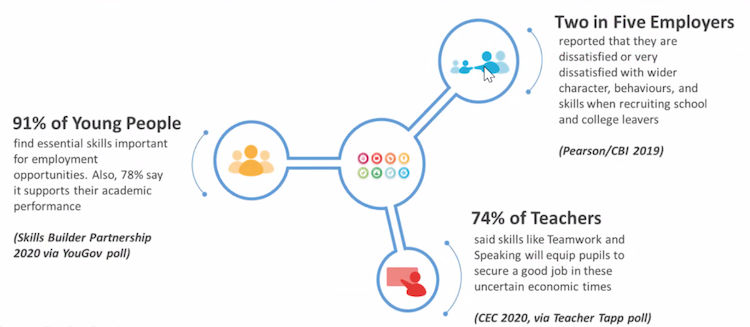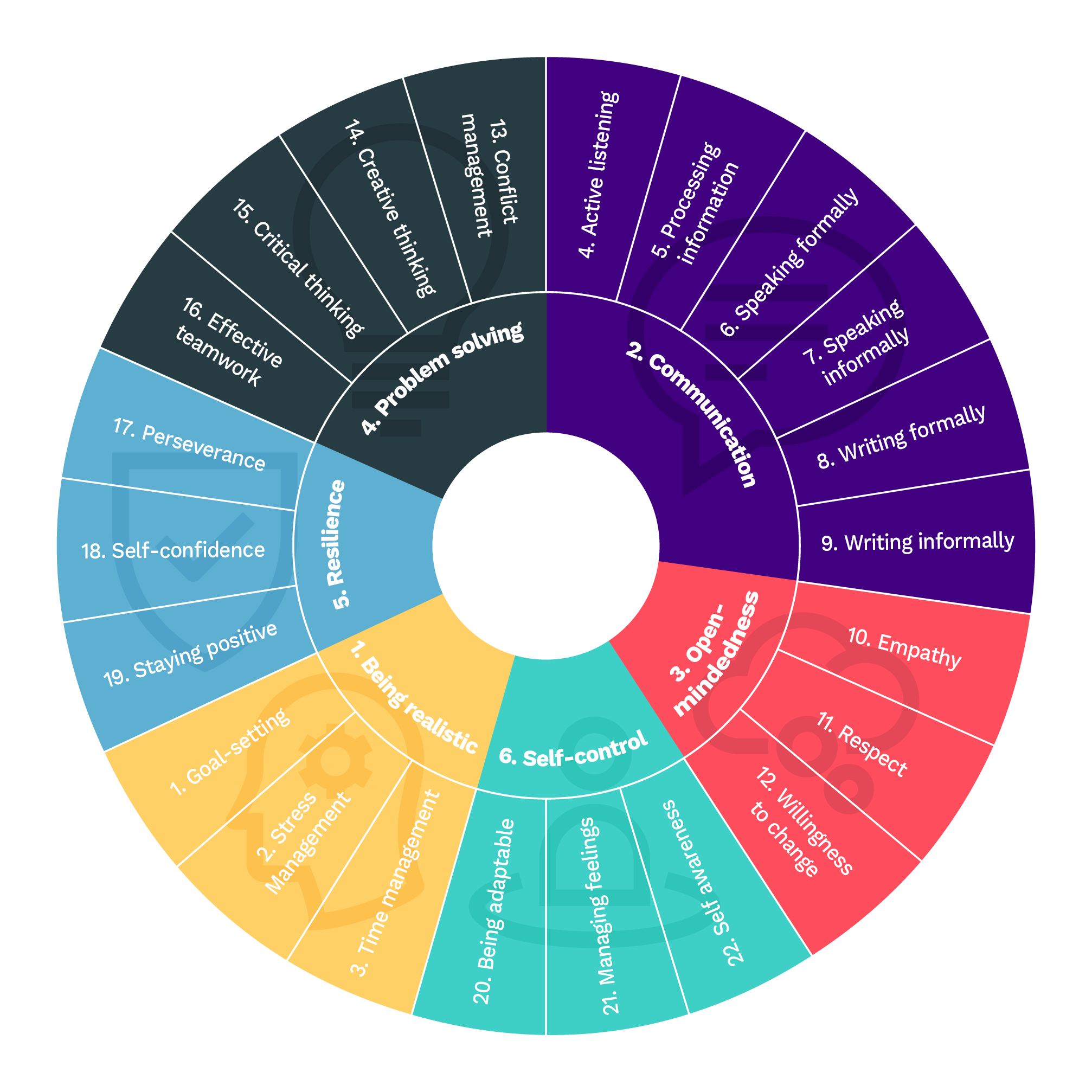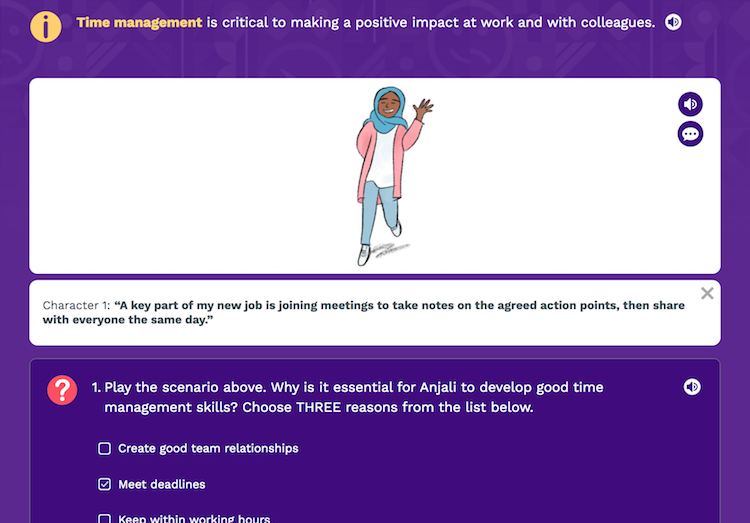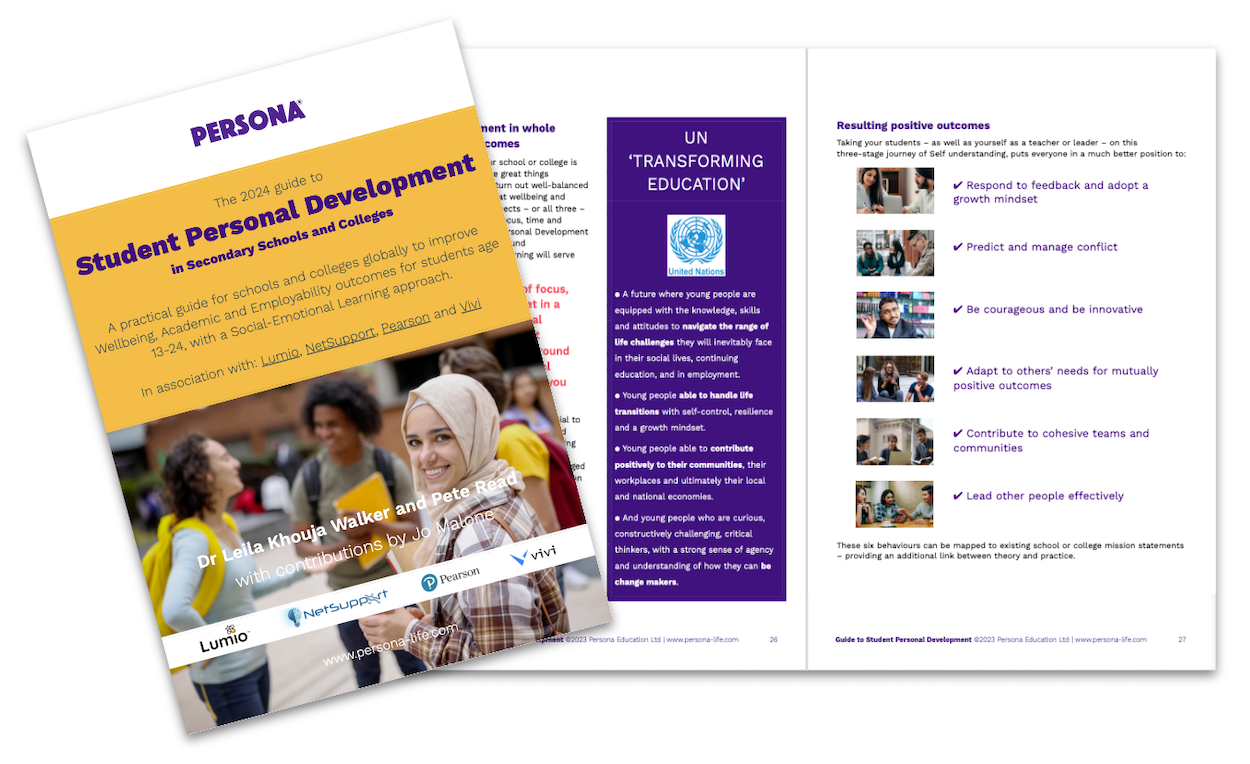The Future Workforce, AI, Education and Skills

Ensuring that young people can thrive in the workplace is an important educational responsibility. Machine Learning and AI will automate millions of existing jobs, and create millions more we have not yet even imagined. The future workforce therefore needs to be able to do the jobs that machines cannot.
21-Aug-22
By Jo Malone, Global Education Advisor
Workplace readiness
There is a lot of discussion, swelled by the COVID-19 pandemic, about the purpose of education. Without a doubt, one purpose is to ensure that young people are ‘workplace ready’. I do not hold a neo-liberal view of education, that education is solely an investment in human capital. I believe that there are multiple purposes for education, from state-building to ensuring that all individuals can be the best versions of themselves.
But – let’s be realistic – for most of us, work makes up a huge part of our adult lives, and ensuring young people can thrive in the workplace is an important educational responsibility.
What does ‘workplace ready’ really mean for the workforce of the 2030s, 40s and 50s? We are well into the fourth industrial revolution. The workplace is changing, and will be unrecognisable within another decade. Machine learning, Artificial Intelligence (AI) and increased digitalisation, are some of the greatest challenges we have ever faced. It’s already here – think about how we get our news, watch TV or shop, compared with ten years ago.
While there will be huge benefits for us all in fields such as public health, agriculture and science (OECD), AI threatens to automate millions of jobs we recognise, and create millions of new jobs that we have not yet even imagined.
By 2025, automation and a new division of labour between humans and machines will disrupt 85 million job descriptions globally. And as the economy and job markets evolve, 97 million new roles will be created.
(World Economic Forum)
 .
.
The future workforce therefore needs to be able to do the jobs that machines cannot. Machines will be able to replace a lot of manual labour, work that involves a lot of data, making predictions and logical thinking, eg. doctors, lawyers and accountants (World Economic Forum).
The World Economic Forum makes the case that future AI will not be good at:
- Non-verbal communication
- Ability to show deep empathy
- Undertaking growth management
- Creativity
So alongside the technical and digital skills required for this future workforce, there is a massive requirement for a range of ‘softer’ skills.
As an aside, I’m with Adel Ahmed when it comes to the term ‘soft skills’. Adel Ahmed, Vice-President of Institutional Effectiveness at Amity University (Dubai Campus), has said the term ‘soft skills’ is a misnomer. He describes them as human capability skills and, far from being soft, they are harder to teach and assess than technical skills (Times Higher Education). At Persona Education we call them Life Skills.
Did I say future workforce?
Actually, business and industry leaders are already telling us – shouting about it in fact – that there is a gap in the skills market right now. Bloomberg’s Recruiter Report in the US in 2016 found leadership, communication, and problem-solving skills are among the most sought-after but least commonly available skills across industries – and this was six years ago (Bloomberg).
The popular career development platform LinkedIn has, more recently, identified human-centric skills such as creativity, persuasion, collaboration, adaptability and emotional intelligence as the top five most in demand by industry (LinkedIn). The OECD lists critical thinking, creativity, communication and collaboration as essential workplace competencies (OECD).
We can add other voices to these: Young people and teachers also acknowledge that human-centric skills are critical for employment prospects.
 .Source: Skills Builder
.Source: Skills Builder
Education must catch up
But our education systems have not caught up.
Well, this is not strictly true. It depends where you are as you read this. In England, our curriculum, and indeed it could be argued, preferred pedagogical approach, remains knowledge centric, with an emphasis on recall. Skills education is the poor relative.
There are other countries however, where the ministry of education is implementing progressive changes, and where skills have elevated status. For instance, the National Education Policy of India is an attempt to give skills an equal footing with a knowledge curriculum, acknowledging not only the workplace challenges that skills can help to address, but also those threatening cohesive and resilient communities (Government of India).
The New Ukrainian School prioritises skills – instead of memorising facts and definitions, students will acquire competencies (Ukraine Ministry of Education & Science). Estonia – a small but shining beacon in educational policy and practice – has a LifeLong Learning Strategy which addresses the challenges of the current formal education system, skills development and the labour market (UNESCO). Singapore is reforming its system to ensure the island nation remains resilient to future shocks.
Countries that redesign their education systems to be adaptive to a future that is volatile, uncertain, complex, and ambiguous (VUCA) are more likely to enjoy high standards of living for years to come (National Center on Education & the Economy).
What now?
We have a responsibility as educators to support young people in developing skillsets that will help them not only in securing meaningful employment in the future, but also in maintaining an attitude that embraces lifelong learning and adaptability.
Persona Education’s online social-emotional learning platform Persona Life Skills has a unique approach to developing skills based on the contexts of a young person’s social, learning and work lives, centred around a unique personality insights framework. 22 Life Skills spanning everything from empathy to time management are wrapped in six Skillets, as you can see here:
Persona Life Skills – 22 Life Skills across six Skillsets
 .
.
In the Persona Life Skills platform, students are provided with tools and guidance to develop these skills in a scaffolded, personalised and age appropriate way, from Getting Started foundation modules, through Applying personality insights modules, to Challenge modules where they begin to learn how to adapt to other people’s needs and preferences.
Additionally, learners get to apply these life skills in different contexts, in scenarios such as work experience, interviews, first jobs and working with colleagues.
 .
.
The Persona Life Skills framework is mapped against Skills Builder (we are a Skills Builder Impact Partner) as well as Gatsby Benchmarks and many other popular frameworks with UK, India, US and international schools.
If you are concerned about equipping your students with the self-knowledge, social-emotional skills and attitudes that will prepare them for the uncertain future of work, then try out Persona Life Skills. It is a tool that can be used to enhance and support careers education, the PSHE curriculum and personal development in tutor time. It can be facilitated in class or self-directed by students – or both. And it is free to try!
Persona Education offers free access to its Persona Life Skills online learning platform for secondary schools and colleges interested in developing their pupils’ social-emotional life skills, to boost wellbeing and employability.
About the author: Jo Malone is a global education expert, with over two decades experience in teaching, e-learning, dialogic education and teacher training. A social-emotional learning (SEL) and PSHE thought-leader, she is Global Education Advisor at the Bristol based edtech company Persona Education Ltd, providing thought leadership in the global education space, leading a Community of Practice and writing for the Persona Education blog. www.persona-life.com




